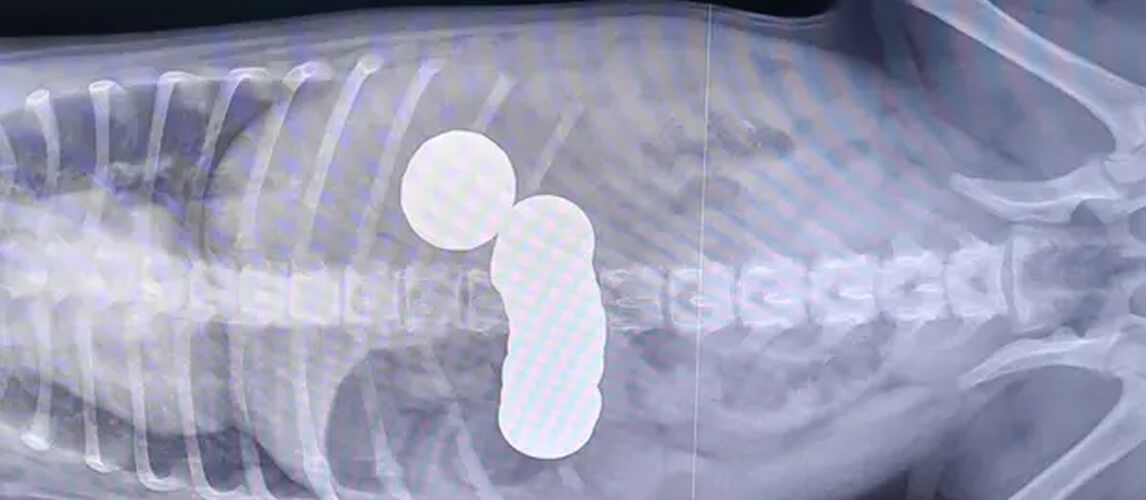When Daisy’s owner noticed that she wasn’t eating and had started vomiting, she became understandably concerned and took her in to see a vet at the local PDSA.
Upon examination, suspicion of a blockage was confirmed via x-ray, showing several coins that were causing the puppy stomach pain and stopping her from eating. Daisy is just 12 weeks old, so a blockage like this can become fatal if it isn’t discovered and treated quickly.
The Blockage
The 20 coins were made up of 13 one pence coins, 3 five pence coins, 2 twenty pence coins, and 2 one pound coins. In total, little Daisy managed to swallow £2.68.
Ivana, Daisy’s owner, explained that her purse had gone missing, and they couldn’t find it anywhere in the house, despite searching “high and low” for it.
“I couldn’t believe it when PDSA rang to tell me Daisy had swallowed so many coins,” she said. No one at home had thought Daisy could be the culprit behind Ivana’s missing purse.
A pet owner’s biggest fear is their dog eating something they shouldn’t and hurting themselves. Ivana explained that they were scared they might lose Daisy after she started getting sick.
“I had no idea a puppy would even eat this sort of thing,” she explained.
Many pet owners aren’t aware of the sheer number of things their dogs are likely chomping on when they aren’t looking.
Why Dogs Eat Coins

Photo Credit: PDSA/PA
It’s possible that the situation was accidental, but considering how many coins Daisy decided to eat, it seems unlikely.
When a dog eats non-food items, they could have a condition called Pica. Pica is the act of consuming non-food substances, and it’s fairly common in dogs, though it can be extremely worrying. The most common form of Pica is Coprophagy, which is the term used for the consumption of feces.
A dog eating metallic objects may need more iron in their diet. They seek out items that simulate a similar taste to the minerals that are missing from their food. It’s also fairly standard for a dog to chew rocks for the same reason.
Who are PDSA?
PDSA is the UK’s leading veterinary charity. They protect pets and other animals across the United Kingdom and are often called upon for emergencies just like Daisy’s when other vets aren’t available or pet parents need assistance with paying for vet bills.
They provide low-cost or even free treatment for pets that are in need of their veterinary services. UK residents will be able to find out if they qualify for a reduced cost of veterinary services by looking on the PDSA website and contacting their local PDSA branch.
At present, there are 48 pet hospitals across the UK that are run by PDSA. Between them, they provide almost 3 million veterinary treatments every year, helping almost half a million pets that their owners are struggling to pay for.
We all have hard times in our lives, but our pets always deserve the best care possible. PDSA help provides this care every day for beloved pets.
Featured image credit: PDSA/PA

